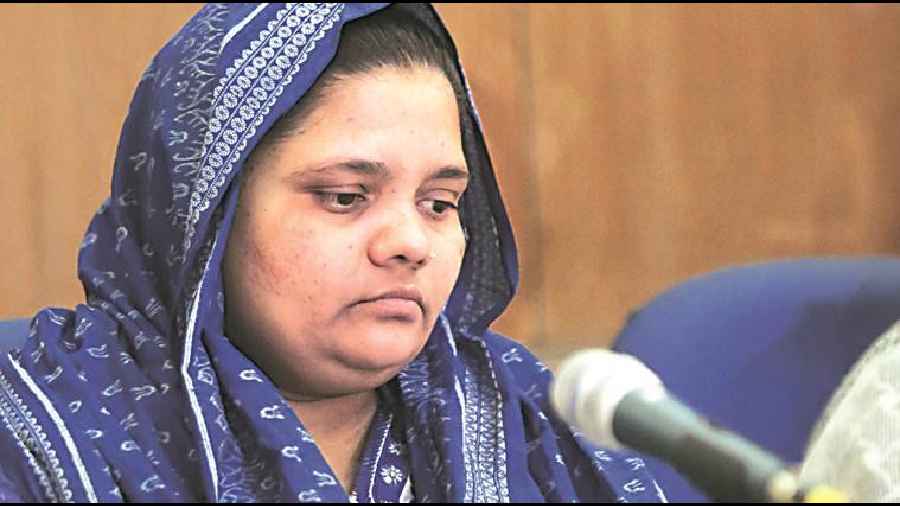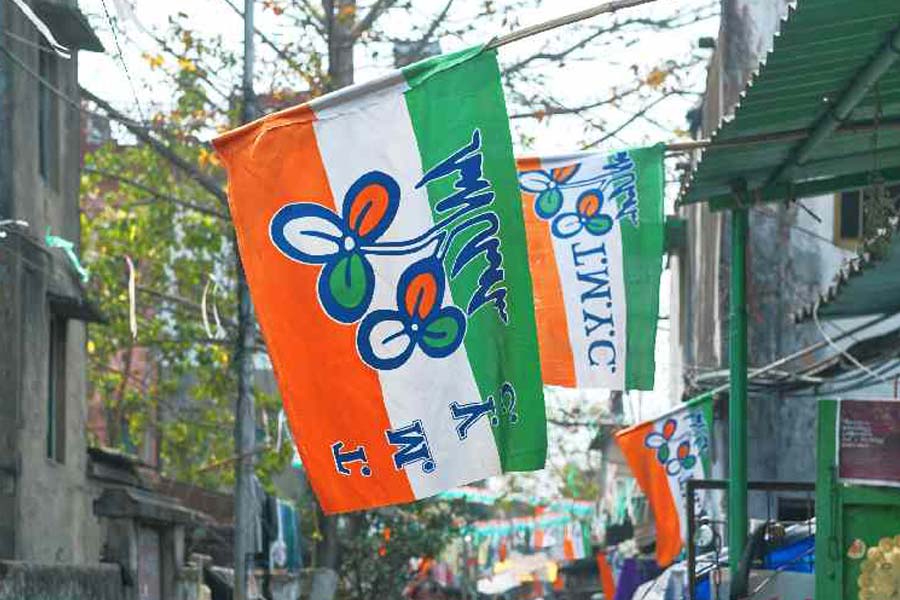Senior human rights lawyer Indira Jaising has said “Bilkis Bano’s gang rape cannot be seen as an isolated crime by a group of individual criminals, but one committed as part of a coordinated strategy of an attack with intent to eliminate a minority community”.
Jaising, a former additional solicitor-general, tore into the BJP government in Gujarat for the August 15 release of the life convicts, accusing it of “condoning a crime against humanity” and granting remission to “mass murderers”.
“Under any dispensation of law, remission is not an indefeasible right, but a matter for the State or the executive to decide from case to case. When the jail committee recommends the remission of the accused persons in this case, who is stated to have undergone a sentence of 15 years and four months, what it is in effect doing is condoning a crime against humanity,” she wrote in an article published in The Leaflet, a legal portal of which she is a co-founder.
Jaising expressed sadness that rather than the statutory law, apologists for the remission were pointing to the May 13 Supreme Court judgment that had asked the Gujarat government to decide on the application for remission.
The apex court, hearing a plea for remission by one of the 11 convicts, had set aside a Gujarat High Court order saying remission cannot be granted by the Gujarat government.
The high court had pointed out that the authority to grant such reprieve lay with the Maharashtra government as the Bilkis Bano gang rape and mass murder case had been tried there. But the apex court had said the policy of the Gujarat government would apply.
“‘To decide’ implies a decision in accordance with the law. Before one gets lost in the legalese and the notorious loopholes which threaten to swallow the very law they proclaim, let us remember that this is above all a moral issue. An immoral decision cannot get the support of the law,” Jaising wrote.
“What is even more surprising is the fact that the petitioner in the Supreme Court matter had earlier approached the High Court of Gujarat, and the high court had correctly held that the appropriate government to grant remission was the Maharashtra government,” she said.
In 2004, the Supreme Court had transferred the Bilkis Bano case to the CBI following allegations of bias on the part of Gujarat police, and the trial was shifted to Maharashtra.
“When his (one of the 11 convicts’) petition was filed in the Supreme Court, the Gujarat High Court order passed in 2019 remained unchallenged, yet it has been set aside by the Supreme Court through its judgment dated May 13,” Jaising wrote.
According to the senior counsel, the decision of the two-judge Supreme Court bench was in “complete violation” of the principle laid down by a nine-judge constitution bench of the Supreme Court in the Naresh Shridhar Mirajkar & Ors. versus State Of Maharashtra & Anr. (1966) case to the effect that a judicial order cannot be challenged under Article 32 of the Constitution.
Jaising pointed out that according to the nine-judge bench verdict, a person can challenge a conviction or seek other reprieve under the CrPC or penal code sections he or she had been charged with, not under Article 32 of the Constitution that deals with remedies for the enforcement of fundamental rights.
The Gujarat convict had moved the Supreme Court under Article 32, making a constitutional appeal instead of a statutory appeal related to the CrPC sections under which he had been charged, and the court allowed it, Jaising pointed out.
“An entire community was targeted with communal violence. No less than nine clusters of murders in nine different districts of Gujarat were investigated by a special investigative team set up by the Supreme Court, and many have been convicted of having committed mass murders,” she wrote.
“The rape of Bilkis Bano and the murders of her family members formed part of this coordinated response in the post-Godhra carnage in Gujarat. Hence, Bilkis Bano’s gang rape cannot be seen as an isolated crime by a group of individual criminals, but one committed as part of a coordinated strategy of an attack with intent to eliminate a minority community.
“It is worth mentioning that sexual violence, when it occurs in this context, has been categorised as a crime against humanity by the Rome Statute of the International Criminal Court. Although India is not a party to the Rome Statute, the statute draws on customary international law and humanitarian law to formulate crime and punishment. The remission, therefore, must be considered as the remission of mass murderers, who set out to eradicate a minority community. The gang rape of Bilkis Bano and the murder of her family members must be looked at from this perspective as to whether there is a case for remission, and the answer must be a loud and resounding No,” Jasing asserted.
She contested the argument from certain quarters that all convicts have a right to remission.
“This is, strictly speaking, not true. Under any dispensation of law, remission is not an indefeasible right, but a matter for the State or the executive to decide from case to case. When the jail committee recommends the remission of the accused person in this case, who is stated to have undergone a sentence of 15 years and four months, what it is in effect doing is condoning a crime against humanity,” Jaising wrote.
“Whispers have been heard that after all they were Brahmins and well-behaved prisoners, and hence remission is required to be given since they were doing their duty by their religion. Such blatant defiance of the Indian Constitution, which guarantees the right to non-discrimination based on religion, caste and sex, has not been seen in our country before and must be condemned,” the human rights lawyer contended.
Jaising referred to the Rome Statute and its Article 77 that says a person convicted of crimes against humanity can be made to undergo a sentence of up to 30 years.
“Even considering that remission is possible, the question is why was it felt necessary to release them in 15 years and four months, rather than allowing them to complete at least 30 years?” she asked.
“After all, the crimes for which they were convicted were punishable with death, but they were given life imprisonment. The Supreme Court has held that life imprisonment means imprisonment for the remainder of one’s natural life. If an exception to this rule is made out, we must surely know the reasons for the same, especially when it is in relation to crimes against humanity, by the very State in which the crimes have occurred.
“Not only does the release send out a signal — a dog whistle — that it is okay to kill and rape people of the minority community, it also has a devastating impact on Bilkis Bano herself, who has expressed the fear that her life and her family members’ lives are in danger.
“The sooner the remission is challenged, the better for our commitment to the morality of democracy, which is the constitutional morality courts too are expected to follow,” Jaising wrote.
Referring to the May 13 judgment of the Supreme Court asking the Gujarat government to consider the remission plea of one of the convicts, Jaising said the two-judge bench had ignored the binding precedent set by a five-judge constitution bench in the Union of India versus V. Sriharan @ Murugan & Ors. (2015) case.
The five-judge bench had laid down that the test to pinpoint the appropriate government permitted to grant remission under Sections 432 and 433 of the CrPC is to locate the state in which the accused was convicted and sentenced, and the government of that state would be the appropriate authority to take a call.
“The division bench relied upon an irrelevant order of the Bombay High Court from 2013 dealing with the transfer of one of the convicts in the Bilkis Bano case from a jail in Maharashtra to a jail in Gujarat. Hence, the May 13 judgment holding that the Gujarat government was the appropriate government to consider the remission is liable to be declared per incuriam” (showing lack of due regard to the relevant law or facts), Jaising wrote.











